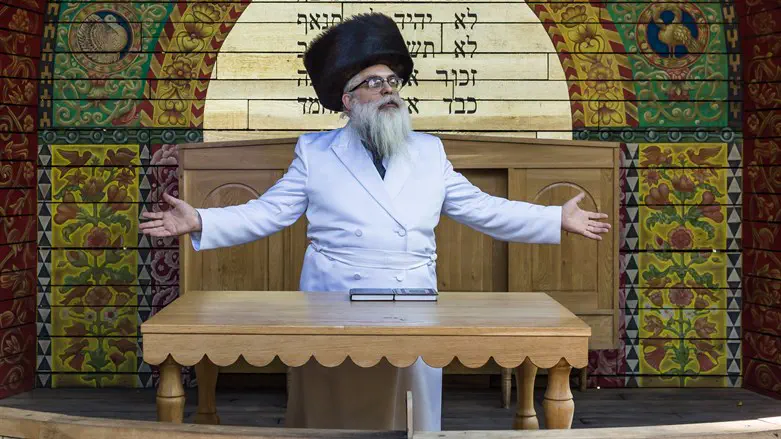
The main organization representing British Jews has suspended its ties with the European Jewish Congress over unspecified “misconduct” allegations against the Congress’ treasurer, Yaakov Dov Bleich, a chief rabbi of Ukraine.
The Board of Deputies of British Jews announced the move on Twitter May 31 without naming Bleich. In the tweet, the group said the EJC did not respond satisfactorily to “misconduct allegations,” whose exact nature has not been reported in the media or specified by the Board.
Bleich, who has been featured in news coverage of the war in Ukraine, has denied all allegations against him, Haaretz reported on Tuesday.
“Anyone in public life, over five to six years, you’re going to make changes, especially at my age, where I am less active,” Bleich told Haaretz. “If you come with something concrete, OK, but everybody who investigated said there’s nothing concrete behind these allegations.”
The Haaretz report was based on correspondence between EJC interim president Ariel Muzicant and Marie van der Zyl, the president of the Board. Those emails, obtained by the Jewish Telegraphic Agency, neither name Bleich directly as the accused nor specify the nature of the allegations.
The Jerusalem Post reported June 2 that the British Board of Deputies had acted over sexual abuse allegations, also without naming Bleich. On social media, reports have swirled before and after the board’s announcement alleging sexual misconduct by Bleich, an American citizen who lives mostly in Monsey, New York.
Bleich told Haaretz that the misconduct allegations are part of a smear campaign against him by members of the Karlin-Stolin Hasidic dynasty, with which Bleich used to be affiliated. He has fallen out with the movement and has a real estate dispute with it, he told the Israeli newspaper.
Another email obtained by JTA, by Jonathan Arkush, a former president of the Board of Deputies, does name Bleich as the reason for the board’s suspension of ties with the EJC.
“The correct action would have been to suspended [sic] R Bleich immediately if he did not agree to step aside and then consider any representation from him against the evidence,” Arkush wrote to EJC President Muzicant on June 1. In the email, Arkush said he supported the board’s suspension of ties with EJC, citing how “troubling matters circulating publicly” create the impression that the EJC is ignoring the problem.
Arkush’s email was in response to an earlier email sent by Muzicant to van der Zyl, who had demanded Muzicant “carry out an internal investigation into these serious allegations against an officeholder” at EJC. Van der Zyl threatened to go public about the issue.
Muzicant replied that his group had in fact looked into the allegations and said that “going public is irresponsible.” (Muzicant was appointed interim president of the EJC in early May after the previous president, Moshe Kantor, resigned after being placed under sanctions in the United Kingdom over his ties to Russia.)
“The investigation we were able to do so far shows: There are no victims or first-hand witnesses which went to the police or to court,” he wrote. “The allegations are dramatic but are second and third parties (hearsay!) and they are three years old.”
Attempts by JTA in recent weeks to contact complainants have not been successful.
Contacted by JTA, Bleich declined to comment on the dispute. The British Board of Deputies has also declined to comment.
The scandal is not the only one unfolding in Europe right now over the handling of allegations against Jewish leaders. Liberal, or Reform, Judaism in Germany is also being roiled by allegations against Rabbi Walter Homolka, the founder and rector of the Abraham Geiger College, a 23-year-old rabbinical school, and against the college for how it has handled them.